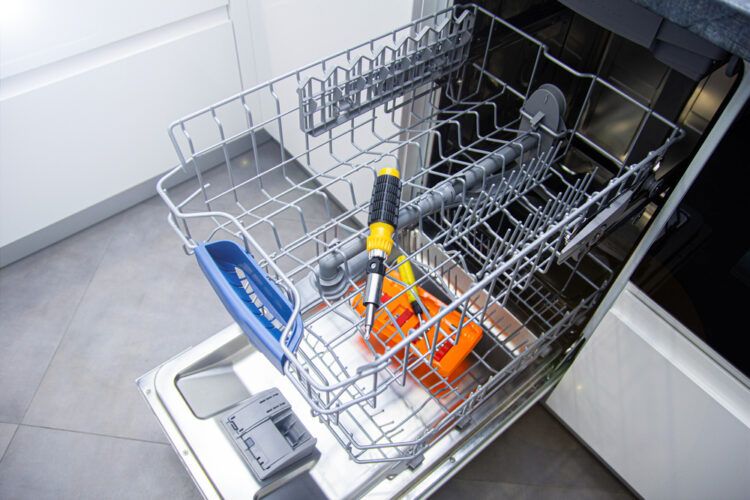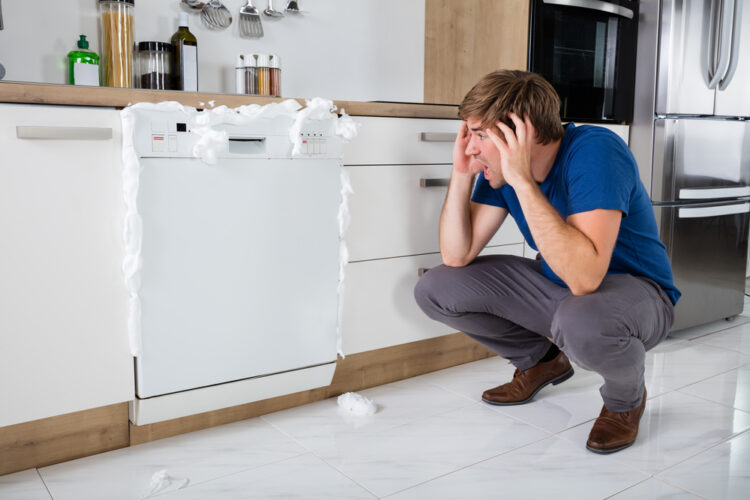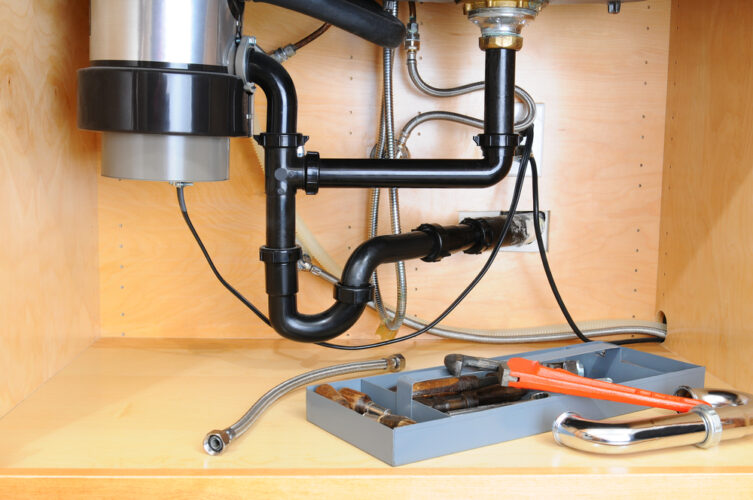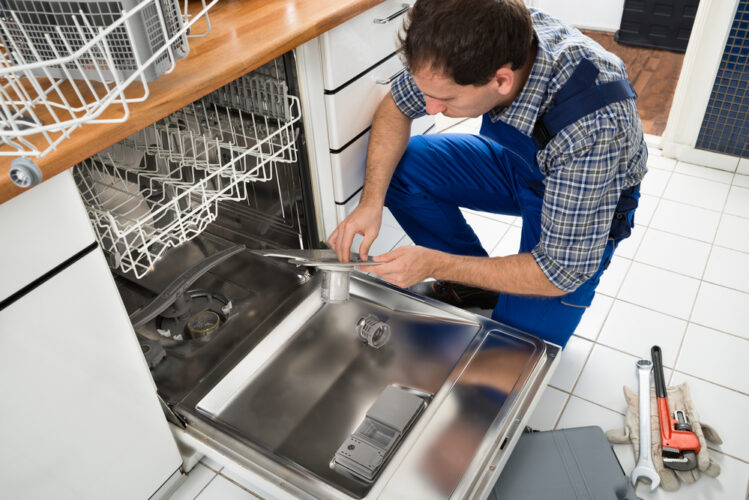Every home needs a dishwasher to speed up dish cleaning and help maintain a clean kitchen. With such an important task to perform, your dishwasher must function optimally.

Unfortunately, this is never guaranteed. It fails and disappoints at the least expected times, just like any mechanical and electric device.
One common dishwasher error is when the dishwasher refuses to drain. This often halts all dish-cleaning operations. It even becomes a health hazard if you do not apply immediate fixes.
Dishwashers fail to drain for various minor and major reasons. Even so, it is never a plumbing emergency. You can easily resolve most of the issues in no time.
I have outlined a few common causes and fixed a dishwasher not draining. Try to fix most of these before resorting to seeking professional help.
Fixing the Dishwasher Not Draining Problem
One summer evening, after filling my dishwasher and leaving it to do its thing, I returned shocked. The dishwasher still had water that failed to drain.
For a minute, I panicked since this was new, and my washer was practically a few months old.
I quickly grabbed the manual to see if there was something useful there. To my disappointment, the explanation didn’t make much sense.
After trying to reach the service center to no avail, I chose to seek other remedies. This was when I turned to good old Google for practical solutions.
To my surprise, this was a common problem that was easy to fix. I got lots of suggestions from users with similar washers, and I am happy to share what I gathered.
I have outlined the potential causes of this mishap and explained how to fix them.
Dirty Trap and Filter
First, establish if your dishwasher has a filter; mine does. I looked up the model number of my dishwasher on the machine’s inside. I used this number to find easy-to-use user manuals and practical how-to videos on Google.
I suggest you do the same, and you will find it under the dishwasher’s revolving piece, below the lower tray. Once you spot it, lift it out of the holding spot. Confirm that the sump underneath does not have extra food particles.
Wash the filter thoroughly and place it back. You can then run another wash run to check if things improve. Clogged filters can easily hinder your dishwasher from draining.
Wrong Liquid Detergent

Your dishwasher may fail to drain entirely because of the wrong dishwashing liquid. This is a major problem, primarily if your machine uses powder detergent.
A pinch of dishwashing liquid does a perfect job cleaning the dishes. Unfortunately, it often creates complications for the dishwasher. Usually, it creates numerous suds that trigger slow water drainage.
You’ll probably get a sud error. The machine stops temporarily to allow proper drainage.
This is easy to fix since all you need to do is change back to powder detergent. Alternatively, reduce the amount of dish liquid detergent you are currently using.
Blockage of the Garbage Disposal

Your dishwasher has a hose connecting to the garbage disposal. This hose gives room for overspills to pass out. Consequently, the drainage process slows down when food particles block the hose.
If the water movement is delayed, the dirty water stands still in your washer. Consider inspecting the garbage disposal properly if other reasons check out. There is a possibility you’ll find food particles.
Let the washer run for a few seconds, and the issue will resolve. If it persists, then you need to clean the drains before re-confirming.
Clogged Air Gap
Sometimes the drain issues result from clogged air gaps. This happens if the dishwasher is new and has not had slow draining challenges before.
Find the air gap on the sink. Check for a small cylindrical cover that is easy to unfasten. This houses the air gap that is often white.
Get rid of grime and other obstructions with tweezers or a miniature brush. Run another cycle and check if the situation of the dishwasher improves.
The Presence of Clogs and Kinks in the Drain Hose
Consider oil, fats, and grease when your dishwasher drainage slows down/ fails to drain. Identify more culprits affecting the garbage disposal in your dishwasher.
If everything else fails, replace the connecting hose. This hose connects the dishwasher machine to the disposal. Over time, the hose becomes clogged and kinked, which slows down the drainage.
Replacement is the only option if the drainage is painfully slow or non-existent.
Fault / Problematic Drain Hose
If everything before fails to work, examine your drain home thoroughly. Focus on the connection points and the hose’s strength and stability. Your observations will guide you to fix clogs and kinks or replace the hose altogether.
Fortunately, these parts are affordable and easy to access. Don’t stress over replaceable parts when efficiency is a guarantee.
Case of Aged Plumbing

Most dishwasher draining problems are fixable without incurring too much cost. However, over time plumbing ages and loses its initial efficiency. The problem is even more severe in winter, as cold weather is harsh on old plumbing.
A plumbing overhaul may be the only solution, especially if everything fails. Re-plumbing may be expensive, but if it is long overdue, then it is unavoidable.
Prepare a budget and choose piping systems that will serve you longer, like copper pipes. However, there are other options to explore.
Hire professionals to assist with the plumbing. Only tackle the plumbing tasks if you have a plumbing certification and training.
Knock Out Plug is Still Intact
Relying on your user manual can be frustrating. They often don’t capture all possible causes of slow-draining issues. Companies may forget to clarify some things for DIYers when installing the dishwasher.
Drain hose pipes that connect your dishwasher to the disposal come with a knock-out plug. Remove this port by knocking it out with a blunt object till it falls and leaves a hole. You can either remove it manually or let it grind down, although this will be loud.
Such a simple fix will resolve your dishwasher’s standstill water effect. Other causes of dishwasher water failing to drain include frozen water inlet valves.
Power failure is the other reason. This is fixable by confirming that breakers and outlets work properly.
Users Also Ask
How do you tell if your dishwasher drain is clogged?
Several symptoms signify clogged drains. The most common is water will stand still or drain slowly, and the dishwasher smells. You may hear a gurgling sound and notice the dishes are improperly cleaned.
Why is my dishwasher not draining after a cycle?
Potential causes include clogged drains, air gaps, drain hoses, or disposals.
Will boiling water unclog the dishwasher?
This works perfectly if the blockage is grease-oriented.